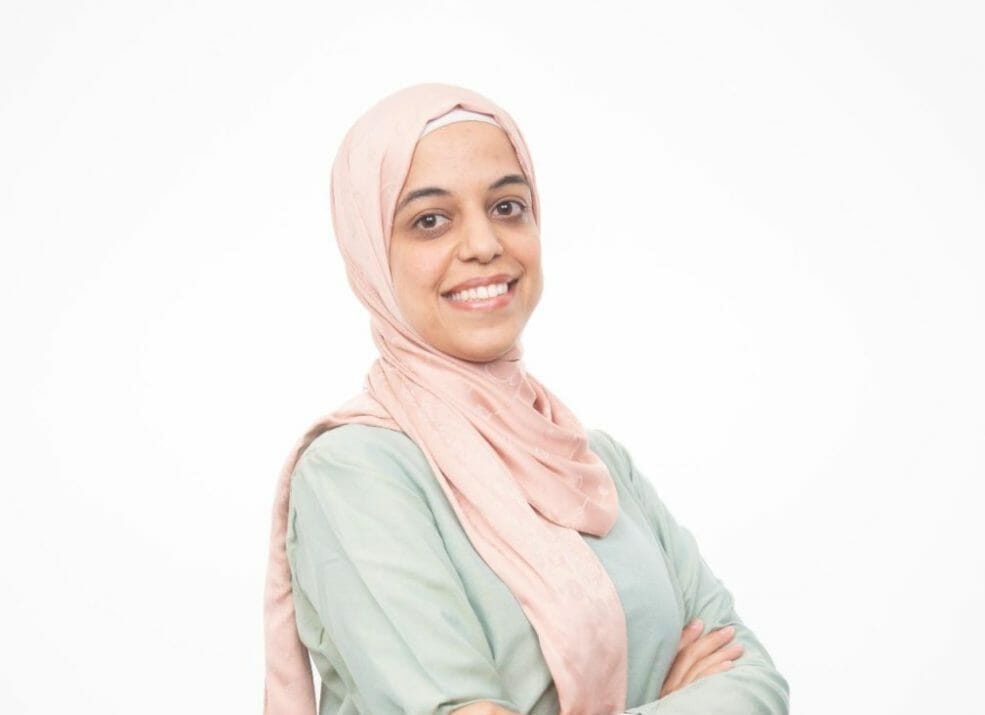
As social entrepreneurs, in SOLVillion, we are leading a new economic culture that is inclusive and poverty-free by linking our business activities to the global Sustainable Development Goals (SDGs) and the full realization of this ambitious UN’s sustainable agenda.”
Aia Abul-Haj Co-founder of SOLVillion, Jordan
Aia Abul-Haj, 2022 WE Empower Finalist, Greater MENA
Aia Abul-Haj is an award-winning engineer in water treatment, solar energy, and the environment. She graduated from Jordan University with a degree in industrial engineering and is now pursuing a master’s degree in built environment. Abul-Hajs’ interests in solving the challenges that communities face is what led her to the development of her start-up company SOLVillion.
SOLVillion provides safe, low-cost, and accessible solutions to wastewater treatment in hopes of creating more sustainable and livable communities within the MENA region. The Decentralized Wastewater Treatment System (DWWS) was manufactured as an on-site water treatment for households that do not have access to sewage systems; the low-energy tanks recycle wastewater to be used for farming and gardening. The efforts of SOLVillion contribute to UN SDG 6: Clean Water and Sanitation, UN SDG 8: Decent Work and Economic Growth and UN SDG 10: Reduced Inequality
Clean water and sanitation

SOLVillions efforts made it possible to have a sustainable and safe solution to water sanitization by improving the quality of wastewater. The DWWS recycles wastewater to be used for agricultural, laundry, or flushing purposes and in turn reduces pollution in the surrounding environment. SOLVillions target to achieve by 2030 is to halve the amount of untreated wastewater and ensure minimalized dumping and chemical/pollutant runoff.
Decent work and economic growth
Part of SOLVillions mission is to reach out to the younger generations and promote education, training, and employment for the youth. A part of the DWWS solution is developed to create motivations for the young to inspire change within their communities from their own perspectives. They are given an outlet for their voice via becoming an ambassador for SOLVIllion. This creates opportunities for jobs, and internships, and sets the mindset for future entrepreneurs to invoke change.
Reduced inequality
Social inclusion is a vital aspect of SOLVillion, and social equality involves equal opportunities to healthy and safe living conditions. A vast amount of communities do not have access to sewage systems, and the impact of poor wastewater management leads to the worsening of climate change, as well as impacting the health and overall well-being of communities. The DWWS was created to provide affordable and accessible wastewater management systems to those in need.
By working together on the SDGs, we strive to create a prosperous and inclusive world for ourselves and for future generations.
Aia Abul-Haj Co-founder of SOLVillion
By Samantha Studstill
The WE Empower UN SDG Challenge is a first-of-its-kind global competition for women entrepreneurs who are pushing the UN Sustainable Development Goals and leading innovation in sustainability and climate change through their businesses. This Contributing Series highlights finalists of the Challenge whose work demonstrates how business models and social entrepreneurship can drive global impact.
